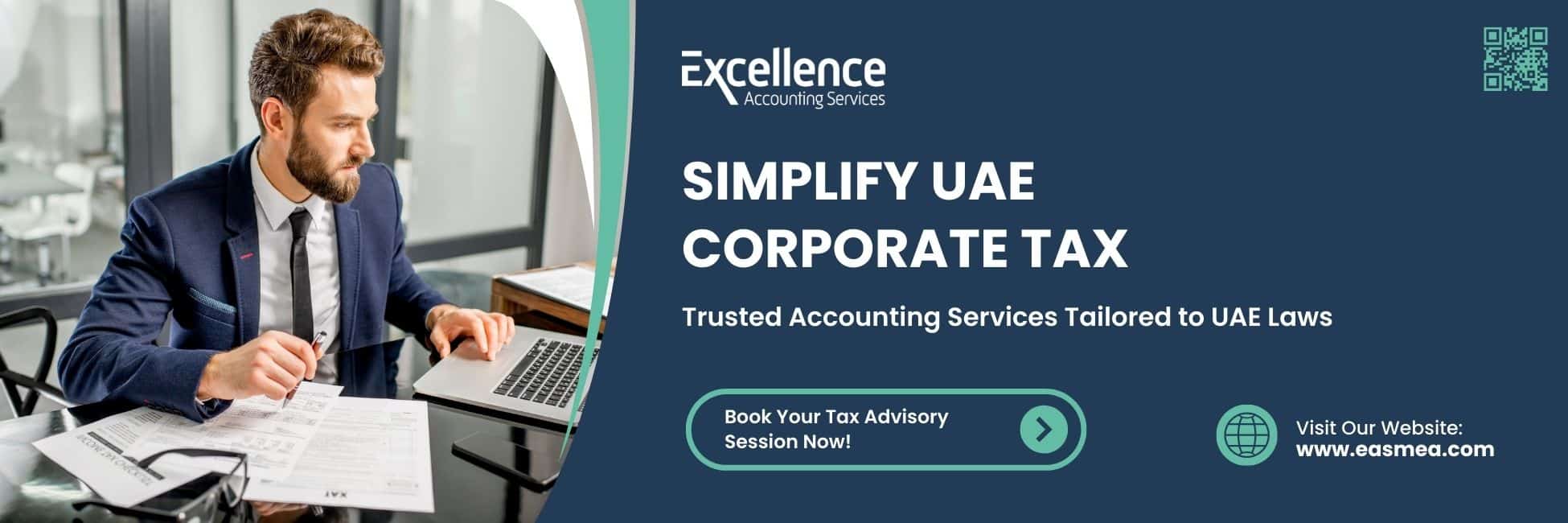Building UAE Corporate Tax Resilience
Are you prepared for Dubai’s evolving corporate tax landscape in 2024? With the implementation of the 9% corporate tax in UAE rate, businesses need robust strategies to maintain financial stability while ensuring compliance.
- Building UAE Corporate Tax Resilience
- Current UAE Corporate Tax Landscape in Dubai
- Strategic Business Structuring for Tax Optimization
- Maximizing Tax Exemptions and Incentives
- Optimizing Deductible Expenses
- Professional Tax Support and Compliance
- Small Business Relief and Support
- Future-Proofing Your Tax Strategy
- Conclusion
- FAQs
The good news? Building UAE Corporate Tax Resilience isn’t as complex as it seems. Whether you’re managing a mainland company or a free zone entity, understanding and implementing the right strategies can significantly optimize your tax position.
In this comprehensive guide, we’ll explore 10 proven strategies to strengthen your corporate tax resilience in Dubai. From leveraging free zone benefits and structuring your business strategically to optimizing deductible expenses and maintaining proper documentation – we’ve got you covered.
Ready to navigate Dubai’s tax landscape with confidence? Let’s dive into these essential strategies that will help you build a tax-efficient business structure for 2024 and beyond.
Key Takeaways:
- Understanding the UAE’s corporate tax system is crucial for both mainland companies and free zone entities to maintain compliance while optimizing tax positions.
- Free zone benefits and strategic business structuring can significantly reduce corporate tax liability while maintaining compliance with UAE tax regulations.
- Proper documentation, financial statement management, and engagement with registered tax agents are essential for successful corporate tax compliance.
- Business owners can minimize their tax burden through careful planning of deductible expenses and understanding available tax incentives.
- The UAE government’s well-thought-out implementation plan ensures a smooth transition while maintaining Dubai’s status as a premier business hub.
Current UAE Corporate Tax Landscape in Dubai
The corporate tax landscape in Dubai has undergone significant transformation since June 2023, marking a shift from its traditional tax-free status. This change reflects Dubai’s commitment to aligning with global tax standards while maintaining its competitive edge in the region.
- Standard Tax Rate and Thresholds: The UAE has implemented a standard UAE corporate tax rate of 9% for businesses with taxable income exceeding AED 375,000. This rate is notably competitive compared to global standards, helping Dubai maintain its attractiveness for international businesses. For income below this threshold, a 0% rate applies, providing relief for smaller enterprises.
- Free Zone Considerations: Free zone entities in Dubai enjoy special tax benefits, including potential tax exemptions on qualifying income. However, these benefits come with specific compliance requirements and economic substance criteria. Businesses must demonstrate genuine economic activities and maintain proper documentation to qualify for these advantages.
- International Business Impact: Large multinational enterprises operating in Dubai face additional considerations with the introduction of a 15% domestic minimum top-up tax. This aligns with global minimum tax standards while ensuring Dubai remains compliant with international tax frameworks.
- Registration and Compliance Framework: The new tax system requires businesses to register based on their license issuance dates. Proper documentation, regular financial reporting, and adherence to filing deadlines are crucial components of the compliance framework. This structured approach helps maintain transparency and efficiency in tax administration.
Key Takeaway: Dubai’s corporate tax system balances competitive rates with international standards, featuring a 9% standard rate, free zone benefits, and structured compliance requirements that support business growth while ensuring fiscal responsibility.
Strategic Business Structuring for Tax Optimization
Business structuring plays a vital role in optimizing your tax position in Dubai’s corporate landscape. By making informed decisions about your company’s structure, you can effectively manage your tax obligations while maintaining compliance with UAE regulations.
- Free Zone vs Mainland Considerations:
Operating in Dubai’s free zones can offer significant tax advantages compared to mainland operations. Free zone companies meeting specific criteria can benefit from tax exemptions on qualifying income. However, it’s crucial to understand that these benefits come with strict compliance requirements and economic substance regulations.When choosing between free zone and mainland operations, consider factors like your target market, business activities, and long-term growth plans. Free zones typically offer 0% corporate tax on qualifying income, while mainland companies are subject to the standard 9% rate on taxable income exceeding AED 375,000.
- Group Structure Benefits:
Forming a qualifying group structure can provide notable tax advantages. Companies within the same group can consolidate their tax positions, potentially offsetting losses against profits and streamlining compliance requirements.
To qualify, businesses must meet specific ownership and control criteria as defined by UAE tax regulations. - Transfer Pricing Compliance:
Proper transfer pricing arrangements are essential when structuring your business operations. Ensure all transactions between related parties are conducted at arm’s length and thoroughly documented. This includes maintaining comprehensive transfer pricing documentation to support your tax positions and demonstrate compliance with UAE regulations. - Economic Substance Requirements:
Meeting economic substance requirements is crucial for businesses seeking tax benefits. This means demonstrating genuine economic activities in the UAE through:
– Adequate physical presence
– Qualified full-time employees
– Core income-generating activities
– Appropriate operating expenditure - Documentation and Governance
Implement robust documentation practices to support your chosen business structure:
– Maintain detailed financial records
– Keep board meeting minutes
– Document strategic decisions
– Preserve corporate governance records
– Track intercompany transactions
Key Takeaway: Strategic business structuring in Dubai requires careful consideration of free zone benefits, group structures, and compliance requirements to optimize tax positions while maintaining regulatory alignment.
Maximizing Tax Exemptions and Incentives
Understanding tax exemptions and incentives is crucial for businesses operating in Dubai’s evolving tax landscape. Let’s explore how you can maximize these benefits effectively while maintaining compliance with UAE regulations.
Free Zone Benefits
Free zones in Dubai offer significant tax advantages for qualifying businesses. Companies operating within these designated areas can benefit from 0% corporate tax rates on qualifying income. However, it’s essential to meet specific criteria and maintain proper documentation to enjoy these benefits.
Industry-Specific Incentives
Various sectors in Dubai enjoy specialized tax incentives. Natural resource extraction companies, government entities, and qualifying investment funds often receive preferential tax treatment. Public benefit organizations and charities may also qualify for tax exemptions when meeting specific regulatory requirements.
Small Business Relief
If your business generates revenue below AED 3 million annually, you may qualify for small business relief. This program offers simplified compliance requirements and potential tax benefits. To access these advantages, ensure your business meets all eligibility criteria and maintains proper financial records.
Strategic Business Structuring
Proper business structuring can significantly impact your tax position. Consider forming qualifying groups or tax groups to optimize your tax liability. This approach allows for more efficient resource allocation and potential tax savings while ensuring compliance with UAE Tax regulations.
Documentation Requirements
Maintaining comprehensive documentation is vital for claiming exemptions and incentives. Keep detailed records of:
– Financial statements
– Tax registration certificates
– Supporting documents for claimed exemptions
– Proof of qualifying income
– Compliance reports
Key Takeaway: Maximize Dubai’s tax benefits by leveraging free zone advantages, industry-specific incentives, and small business relief while maintaining proper documentation and compliance with UAE regulations.
Optimizing Deductible Expenses
Understanding deductible expenses is crucial for managing your corporate tax liability in Dubai. Let’s explore how you can optimize these expenses effectively while staying compliant with UAE tax regulations.
Identifying Allowable Deductions
The UAE tax framework allows businesses to deduct various operational expenses from their taxable income. These include employee salaries, rent payments, utility costs, and marketing expenses. It’s essential to maintain detailed records of these expenditures to support your deductions during tax filing.
Strategic Timing of Expenses
Planning when to incur expenses can significantly impact your tax position. Consider accelerating deductible expenses near the end of your tax year if it benefits your current tax situation. However, ensure these expenses are genuine and properly documented to withstand scrutiny.
Documentation Requirements
Proper documentation is non-negotiable when claiming deductions. Keep organized records of all business expenses, including invoices, receipts, and payment confirmations. Digital record-keeping systems can help streamline this process while ensuring compliance with UAE tax regulations.
Common Deductible Categories
Focus on maximizing legitimate deductions in key areas:
- Interest payments on business loans
- Depreciation of assets
- Professional service fees
- Travel and entertainment expenses
- Marketing and advertising costs
- Employee benefits and training
Avoiding Common Pitfalls
Be cautious about personal expenses mixed with business costs. The UAE tax authorities closely examine expense claims, so ensure all deductions are directly related to generating business income. Maintain clear separation between personal and business expenses to prevent complications during tax audits.
Key Takeaway: Optimize your tax position by carefully tracking and documenting allowable deductions, timing expenses strategically, and maintaining clear separation between business and personal costs while ensuring full compliance with UAE regulations.
Professional Tax Support and Compliance
Navigating Dubai’s corporate tax landscape requires expert guidance to ensure full compliance and optimal tax efficiency. Working with qualified tax professionals can help businesses make informed decisions while minimizing risks.
Benefits of Professional Tax Advisory
Professional tax advisors bring invaluable expertise in UAE tax regulations and compliance requirements. They help businesses understand complex tax provisions, maintain proper documentation, and implement effective tax planning strategies. Their knowledge of both local and international tax laws ensures businesses stay compliant while maximizing available benefits.
Choosing the Right Tax Partner
When selecting a tax advisor in Dubai, look for registered tax agents with proven experience in UAE corporate taxation. Consider their track record, industry expertise, and understanding of your specific business needs. The right partner should offer comprehensive support including compliance monitoring, risk assessment, and strategic planning.
Ongoing Support and Monitoring
Regular consultation with tax professionals helps businesses stay updated on regulatory changes and adapt their strategies accordingly. This proactive approach ensures continuous compliance and helps identify potential opportunities for tax optimization. Professional advisors can also assist with periodic reviews of tax positions and documentation requirements.
Key TakeawayProfessional tax support is crucial for navigating Dubai’s corporate tax services system effectively, ensuring compliance while optimizing tax positions through expert guidance and continuous monitoring.
Small Business Relief and Support
Small businesses in Dubai can breathe easier with the UAE’s thoughtful tax relief measures. The government has introduced several support mechanisms to help smaller enterprises manage their tax obligations effectively.
Understanding Small Business Relief
For businesses with revenue below AED 3 million, the UAE offers significant tax advantages. This relief program ensures that smaller enterprises aren’t overwhelmed by tax compliance requirements. The threshold applies to the total revenue earned during the relevant tax period.
Key Benefits for Small Businesses
Small businesses enjoy simplified compliance procedures and reduced administrative burdens. They can opt for a straightforward calculation method for their taxable income. This approach helps save time and resources that would otherwise be spent on complex tax computations.
Support Services Available
The UAE government provides dedicated support channels for small businesses navigating the corporate tax in the UAE landscape. These include:
- Free tax awareness workshops
- Online resources and guides
- Dedicated helpline for tax-related queries
- Access to simplified tax filing tools
Documentation Requirements
While enjoying tax relief, small businesses still need to maintain basic records:
- Annual financial statements
- Revenue documentation
- Expense receipts
- Bank statements
- Employee-related records
Eligibility Criteria
To qualify for small business relief, enterprises must:
- Generate revenue below AED 3 million annually
- Maintain proper business records
- File returns within specified deadlines
- Not be part of a multinational enterprise group
- Operate primarily within the UAE
Key Takeaway: Small businesses in Dubai with revenue under AED 3 million can access significant tax relief and support services, making corporate tax compliance more manageable through simplified procedures and dedicated assistance.
International Business Considerations
The global nature of business operations in Dubai requires careful consideration of international tax implications. Companies engaging in cross-border transactions must navigate complex tax regulations while maintaining compliance with both local and international standards.
Transfer Pricing Regulations
Transfer pricing has become a crucial aspect of international business taxation in Dubai. Companies must ensure their inter-company transactions follow arm’s length principles. This means pricing transactions between related entities as if they were conducted between independent parties.
Proper documentation of transfer pricing policies and regular reviews of international transactions help maintain compliance and avoid potential disputes with tax authorities.
Double Tax Treaties
Dubai’s extensive network of double tax treaties provides significant advantages for international businesses. These agreements help prevent double taxation on the same income in different jurisdictions. Understanding and utilizing these treaties effectively can lead to substantial tax savings and improved business efficiency.
Economic Substance Requirements
International businesses operating in Dubai must demonstrate genuine economic substance. This means having:
- Adequate physical presence
- Qualified employees
- Core income-generating activities
- Proper management and control
Meeting these requirements is essential for accessing tax benefits and maintaining compliance with international standards.
Cross-Border Transactions
Managing cross-border transactions requires careful planning and documentation. Businesses should:
- Maintain detailed records of international dealings
- Understand withholding tax obligations
- Monitor currency fluctuations
- Consider timing of transactions for optimal tax efficiency
Global Minimum Tax Impact
The introduction of global minimum tax rules affects multinational enterprises operating in Dubai. Large groups with annual revenue exceeding €750 million must consider the 15% minimum effective tax rate when structuring their international operations.
Key Takeaway: International businesses in Dubai must balance local tax advantages with global compliance requirements, focusing on transfer pricing, substance requirements, and treaty benefits while maintaining proper documentation for all cross-border activities.
Future-Proofing Your Tax Strategy
Tax regulations in Dubai are evolving rapidly, making it crucial for businesses to develop adaptable strategies. A forward-thinking approach helps you stay ahead of changes while maintaining compliance and optimizing tax positions.
Stay Informed About Regulatory Changes
Keep a close eye on updates from the Federal Tax Authority (FTA) and Ministry of Finance. Subscribe to official newsletters, attend tax seminars, and join professional networks to stay current with emerging tax policies and requirements.
Invest in Tax Technology
Modern tax software and digital tools can streamline compliance processes and reduce errors. Consider implementing tax management systems that can adapt to regulatory changes and provide real-time insights into your tax position.
Build a Skilled Tax Team
Develop internal tax expertise by investing in training programs for your finance team. Having knowledgeable staff who understand both current requirements and emerging trends ensures better preparation for future changes.
Regular Strategy Reviews
Conduct quarterly assessments of your tax strategy to identify areas for improvement. This proactive approach helps you adapt to new regulations and market conditions while maintaining optimal tax efficiency.
Create Contingency Plans
Develop backup plans for various tax scenarios that could impact your business. This might include changes in tax rates, new reporting requirements, or shifts in international tax agreements.
Key TakeawayFuture-proof your tax strategy by staying informed, leveraging technology, building expertise, and maintaining flexibility to adapt to Dubai’s evolving tax landscape while ensuring long-term compliance and efficiency.
Conclusion
Building corporate tax resilience in Dubai requires a strategic approach, combining proper planning, expert guidance, and proactive compliance measures. By implementing these 10 essential strategies, businesses can navigate the UAE’s new tax landscape while maintaining their competitive edge in 2024 and beyond.
Remember, successful tax management isn’t just about minimizing liability – it’s about creating sustainable practices that align with UAE tax regulations while maximizing available benefits and exemptions. Whether you’re operating in a free zone or mainland, staying informed about corporate tax legislation and maintaining accurate financial statements are crucial for long-term success.
Take the first step towards tax resilience today by consulting with a registered tax agent, reviewing your business structure, and implementing proper documentation systems. With the right approach and expert support, you can transform tax compliance from a challenge into an opportunity for business optimization in Dubai’s dynamic business environment.
FAQs
Non-compliance with UAE corporate tax regulations can result in penalties, fines, and legal consequences. The Federal Tax Authority may impose administrative penalties ranging from AED 10,000 to AED 50,000 depending on the violation severity. Regular tax audits and assessments may also be conducted.
Yes, foreign companies operating branches in UAE can typically claim tax credits in their home country based on bilateral tax treaties. However, this depends on specific agreements between UAE and the company’s home country, and proper documentation of UAE corporate tax payments is essential.
Free zone companies conducting business in mainland UAE may be subject to corporate tax on income derived from mainland activities. While free zone tax benefits remain intact for qualifying activities, mainland operations are generally taxable under UAE corporate tax law.
Yes, businesses with annual revenue exceeding AED 375,000 must register for corporate tax. However, all businesses, regardless of revenue, should maintain proper financial records as the Federal Tax Authority may request documentation during assessments.
How are related-party transactions treated under UAE corporate tax law?
Related-party transactions must follow transfer pricing rules and the arm’s length principle under UAE corporate tax law. Businesses must maintain documentation proving that transactions between related parties are conducted at market value to prevent tax avoidance.
What are the corporate tax implications for mergers and acquisitions in UAE?
Mergers and acquisitions in UAE may qualify for tax-neutral treatment if they meet specific conditions under corporate tax legislation. Proper documentation, valuation reports, and prior approval from tax authorities might be required to ensure tax-efficient restructuring.
Related-party transactions must follow transfer pricing rules and the arm’s length principle under UAE corporate tax law. Businesses must maintain documentation proving that transactions between related parties are conducted at market value to prevent tax avoidance.
What are the corporate tax implications for mergers and acquisitions in UAE?
Mergers and acquisitions in UAE may qualify for tax-neutral treatment if they meet specific conditions under corporate tax legislation. Proper documentation, valuation reports, and prior approval from tax authorities might be required to ensure tax-efficient restructuring.
Mergers and acquisitions in UAE may qualify for tax-neutral treatment if they meet specific conditions under corporate tax legislation. Proper documentation, valuation reports, and prior approval from tax authorities might be required to ensure tax-efficient restructuring.





